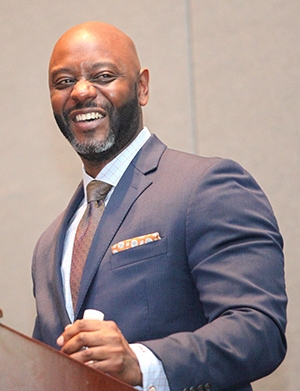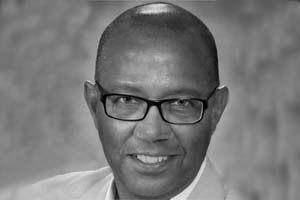On September 20-21, 2016 I participated in the annual Sports Diversity & Inclusion Symposium, hosted by the NCAA on their beautiful campus in Indianapolis. Created in 2012, its purpose is to bring together diversity and inclusion specialists from each major sport, to engage in meaningful dialogue and share best practices to help advance diversity and inclusion throughout the sports industry. There were 150 participants at this year’s symposium.
Approximately 12 major sports organizations were represented, including the NCAA, Major League Baseball, the National Football League, NASCAR, Soccer, Hockey, Tennis, the NBA and WNBA. Golf was represented, too, with representation from the USGA, PGA of America, and PGA Tour. We met for two full days, covering important agenda items like diversity training, hiring and retention best practices, corporate social responsibilities, advancing females, social media, supplier diversity, and how best to include the LGBT, physically challenged, and millennial communities. The lineup of presenters was impressive, and the handouts and other support material were very useful.
The highlights from the symposium, for me, was the opportunity to meet and discuss diversity and inclusion with the finest and most passionate advocates in the sports industry, plus learn how other major sports are aligning their inclusion efforts with the changing demographics of America, whose population continues to increase among females and people of color. The leading golf organizations are slowly joining this diversity and inclusion movement, but symposiums like this expose the obvious; and that is golf lags far behind most other major sports organizations in diversity and inclusion initiatives, open and honest dialogue, and providing ample resources for change efforts. One of the most glaring deficiencies in golf is in supplier diversity.

Corey Smith, Senior Director, Supplier Diversity and Strategic Sourcing Diversity and Strategic Alliances for Major League Baseball.
One of the leaders in the Sports Consortium is Corey Smith, Senior Director, Supplier Diversity and Strategic Sourcing Diversity and Strategic Alliances for Major League Baseball. On the final day in Indianapolis, he led a panel discussion on the topic of supplier diversity. The day earlier, during a diversity training session, I was paired with Corey in a dynamic exercise that simply required getting to know someone via face-to-face dialogue. As we exchanged thoughts with one another, I felt his emotions and passion as Corey talked about his upbringing in the heart of New York City. He told me about his father, an entrepreneur and small business owner, who is his lifelong hero and role model.
Corey attributed his passion for diversity and inclusion in sports to the early examples from his father. He’s convinced that doing business with minority groups is good for business. It helps the bottom-line by encouraging larger organizations to check for better pricing, faster and more efficient services. Often times, larger organizations are guilty of doing business with the same friends, and/or the same companies year after year, with little regard to competitive pricing and comparisons. Corey also explained that doing business with minority businesses strengthens local communities, and the economic viability of businesses and families should be important to any community conscious organization. Finally, he credited supplier diversity initiatives with helping to enlarge fan base, for when one becomes a respected business partner it creates brand loyalty, advocacy, and continuous support.
The business of golf continues to slide backward, as evidenced by Nike recently announcing it is discontinuing its club making and sales. Participation from Blacks has declined from 6% in 2003 to 5% in 2010, to 4.4% in 2015. According to a 2015 report, Blacks are only 1% of golf’s workforce. If the leaders in golf are serious about changing its image and true inclusion, it must break away from its good ‘ol boy network mentality, and adopt some of the best practices used by other major sports organizations.
While I am the first to acknowledge that progress is being made, I am also mindful that golf is so woefully behind, that more aggressive and intentional efforts are needed to quicken the pace of diversity and inclusion throughout the game and industry. Otherwise, golf will continue to lag behind other major sports leaders, and more importantly, continue to lag behind the changing demographics in America in terms of females and minority participation.
 ABOUT MICHAEL COOPER, PH.D. Dr. Michael W. Cooper is the former Director of Diversity for the World Golf Foundation/The First Tee and past Assistant Dean/Campus Director for Springfield College-Tampa Bay campus. Contact him at mcooper2@springfieldcollege.edu.
ABOUT MICHAEL COOPER, PH.D. Dr. Michael W. Cooper is the former Director of Diversity for the World Golf Foundation/The First Tee and past Assistant Dean/Campus Director for Springfield College-Tampa Bay campus. Contact him at mcooper2@springfieldcollege.edu.


